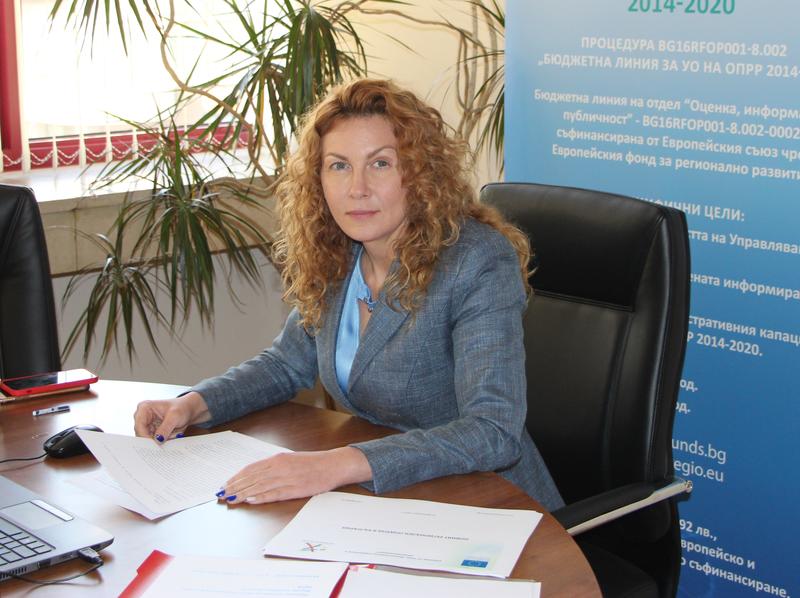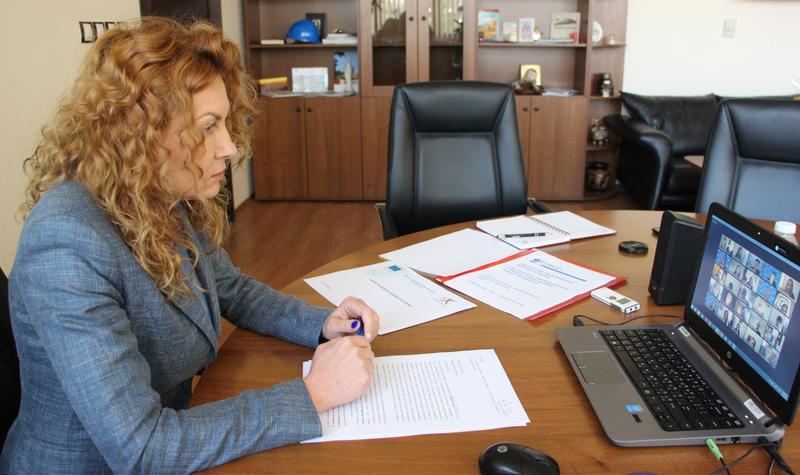OECD highly praised the governance and economic development of Bulgaria
OECD highly praised the governance and economic development of Bulgaria
By Ministry of Regional Development and Public Works
We cooperate with the organization for the development of the regions and the improvement of the regional policy
Bulgaria's achievements in economic development and governance in recent decades are commendable. Benefiting from EU membership, gross domestic product per capita increased from 29% compared to the Union average in 2000 to 53% in 2019. Economic growth of 3% for five consecutive years, significant wage growth, as well as historically low levels of unemployment in the pre-crisis period of COVID 19. Bulgaria has also improved its governance structure with a decentralised municipal level and deconcentrated administrations at the national level. That is what Ulrik said Knudsen - Deputy Secretary General of the Organisation for Economic Co-operation and Development (OECD), who presented a report of the organization on "Decentralisation and Regionalisation in Bulgaria: Towards Balanced Regional Development" during a joint seminar held online today. It was attended by Deputy Minister of Regional Development and Public Works - Denitsa Nikolova, Isabel Shatri - Senior Political Analyst at the OECD, NAMRB Executive Director - Silvia Georgieva and others.
The report was prepared in the framework of a joint project implemented by the Ministry of Regional Development and Public Works with the OECD in 2018 to reform the policy for regional development and decentralization of governance bodies at the regional level.
Deputy Minister Nikolova thanked for the support of the OECD and stressed that as a result of the joint project our country has made a number of efforts to reform regional policy, which aims to reduce disparities between Bulgarian regions, reduce demographic problems and increase economic growth.
"By 2027, we will direct over 4.2 billion euros from the Regional Development Program and other European programmes for integrated territorial investment in Level 2 regions to reduce imbalances," said Deputy Minister Nikolova. She stressed that European investments will reach every town and village and there will be no so-called "White spots" - settlements without EU funding. "We have synchronised the measures in order to achieve an integrated nature of the investment process, both for urban and rural areas in the country," said Nikolova. It is possible to apply a bottom-up approach, in which the initiative for the measures to be supported comes from local stakeholders and the decisions are taken by the relevant territorial authorities.
The Deputy Regional Minister pointed out that amendments to the Regional Development Act have optimised the system of strategic documents for the implementation of regional and spatial development policy and expanded the functions, powers and composition of regional development councils to implement activities on the territory of the specific region for pre-selection of project ideas financed from various sources. This is a key step towards regionalisation and decentralisation of the country, which in the future has the potential to be upgraded in case of delegation of more powers at the regional level.
"With the implemented measures we expect at the end of the programming period 2021-2027, through investments in all regions of the country, to contribute to reducing disparities, to increase economic activity and last but not least to improve the quality of life of people", Denitsa Nikolova also noted.
In its report, the OECD also notes that, despite solid progress, there are significant social and economic challenges to regional policy and interregional disparities. To solve them, the organisation proposes Bulgaria to apply an approach based on the specifics of the specific territory, to improve municipal decentralisation and reform of regional governance.
"We believe that with the recommendations given by the OECD in the course of our joint work on the project, we will be able to continue and build on the reform of the country in terms of regionalisation and decentralisation, creating in the future really working and strong regional structures in regional development policy", commented Denitsa Nikolova.







